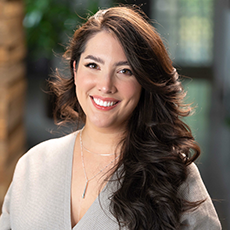Improving Accessibility for Spanish-Speaking Seniors in Medicare Advantage
Spanish-speaking seniors face a variety of challenges in navigating Medicare, but payers can take steps to demystify the system by providing authentic Spanish-speaking services.

Source: Getty Images
- Over the phone, a Spanish-speaking senior explains to an Anhelo Salud (Anhelo) representative her recent history with Medicare.
During the conversation, the representative realizes that different health plans have enrolled the senior in a new plan two or three times over the past year. The beneficiary never knew that her coverage policy had changed. She thought that the English-speaking callers on the other end of the line were explaining her benefits to her, but they were offering and enrolling her in new plans.
For Sofía de la Guardia, editorial content manager at Anhelo, situations like this one are heartbreaking and all too common. De la Guardia, who is Hispanic, indicated to HealthPayerIntelligence that seeing Hispanic seniors trapped in these confusing scenarios evokes a personal response.
“In the Latino community specifically, we have such reverence for our seniors and it's so important for us that they are taken care of,” de la Guardia said. “That is legitimately, for us, like seeing your own abuelito or abuelita getting swindled a bit. It's a harsh word, but that's how it feels sometimes.”

Sofía de la Guardia, editorial content manager at Anhelo
Source: Anhelo SaludUnfortunately, the situation that de la Guardia described is just one of many perplexing and disruptive scenarios Spanish-speaking seniors encounter when navigating the Medicare system.
“Medicare's already so complicated,” de la Guardia said. “And when you add to that a language barrier, a cultural barrier, lack of generational knowledge, if you are an immigrant or first gen Hispanic American—it can get so overwhelming so fast.”
The problem is not the amount of marketing about Medicare Advantage plans.
In the 2023 Notice of Benefits and Payment Parameters Final Rule, CMS shared that the agency had received nearly 40,000 complaints about Medicare marketing practices in 2021—not including complaints from December 2021. This was more than double the number of complaints in the previous year.
Consumers’ feedback and the steep incline in Medicare television ads prompted CMS to place new restrictions on marketing from Medicare Advantage and Medicare Part D third-party marketing entities.
The amount of information can be overwhelming for seniors, particularly in non-English-speaking communities. The effects of language barriers and other complicating factors for the Hispanic population are reflected in health insurance enrollment trends, where health equity gaps are noticeable.
In the 2020 open enrollment period which occurred in 2019, the Hispanic Medicare population proved less likely to compare plans than their White or Black counterparts. Only three out of ten Hispanic beneficiaries reviewed their current coverage for changes, compared to five out of ten Black beneficiaries and six out of ten White beneficiaries.
For a population that already faces significant social determinants of health barriers, access to health insurance and comprehensive coverage are crucial. Payers have the opportunity to address health equity, reduce social determinants of health barriers, and improve member experience by committing to multicultural health insurance.
Establish multiculturalism in services, workforce
De la Guardia named three ways that health insurance companies can make their services better suited to Hispanic seniors’ needs by embracing mulitculturalism.
First, insurers that want to appeal to beneficiaries from a diverse set of ethnic and racial backgrounds should seek to embody that diversity internally.
“Multiculturalism is our strength and, in order to provide a better service for a multicultural community, you have to be multicultural in your own ranks,” de la Guardia said.
Industry leaders have promoted diversity in healthcare among providers. Some payers have advocated for and implemented solutions to create a diverse provider workforce.
But there are unique benefits to having a health insurance workforce that is multi-lingual and multi-cultural as well. Multiculturalism internally should be present in every area of the payer company’s operations—from Spanish-speaking agents to Spanish informational pamphlets.
Multi-lingual informational materials are so crucial to the multicultural insurance approach that de la Guardia addressed it separately in her second recommendation for insurers. Health insurers that want to embrace a multicultural approach to healthcare should ensure that their materials are available in a variety of languages and formats.
For example, some seniors might prefer a phone call, whereas others—especially those who may be hard of hearing—would rather receive insurance materials through paper mail or email. Offering that flexibility is important for non-English-speaking and English-speaking seniors alike.
Lastly, overarching efforts to simplify health insurance are a part of creating an environment of multiculturalism in Medicare. Healthcare navigation simplification endeavors have resulted in a range of solutions.
For example, Walmart implemented a personalized provider recommendation tool to improve the provider search process. Blue Shield of California sought to streamline the member experience for medical billing by creating a monthly, simplified bill for members. CMS has also taken steps toward simplifying healthcare navigation for Medicare beneficiaries in its 2022 update to Medicare.gov.
While these efforts did not directly target the Hispanic senior community—or even, in some cases, the Medicare population—they contributed toward improving seniors’ experiences overall.
Apply multiculturalism to enrollment, post-enrollment engagement
Observing Hispanic seniors’ challenges firsthand fueled the launch of Anhelo in 2021.
“We realized, ‘Hey, there's this huge gap in the insurance market. No one is really dedicated to helping Hispanic seniors get the best health coverage than they possibly can,’” de la Guardia shared. “We said to ourselves, ‘What if we create a company where Hispanic seniors can shop around in their language of preference?’”
According to the launch press release, Anhelo is a Medicare insurance agency that operates entirely in Spanish. The agency characterizes itself as both “in-language” and “in-culture” for the Latino community.
“People tend to sometimes think that Anhelo is an insurance company, that we have our own insurance plans—we don't. What we do is we're an insurance agency. Basically, we provide key information and enrollment support for free in Spanish for seniors. And the way that it works is that we partner with well-known insurance companies,” de la Guardia clarified.
Anhelo partners with major insurance companies to offer free Medicare plan information, enrollment guidance, and follow-up support services to Spanish-speaking seniors.
“It's never going to be ‘press two to speak in Spanish’ and go through a translator who doesn't know the product and you end up in this weird third-party situation,” de la Guardia explained.
The agency’s hundreds of fully bilingual agents offer support for seniors during open enrollment. The model allows seniors to work with an agent who understands the cultural nuances of seniors’ circumstances and preferences.
But Hispanic seniors need support in Spanish for Medicare-related issues apart from enrollment. Anhelo representatives find that Hispanic seniors need help downloading their payers’ apps, setting up their online health insurance profiles, and addressing other technical issues.
The other major need unrelated to enrollment that Hispanic seniors often express to de la Guardia and her team is the need for a benefits review.
After the long enrollment process, seniors may not remember or understand what their benefits are. They may value receiving a follow-up call from a knowledgeable agent offering to go through their coverage plan with them, reviewing what they have and how they can use those benefits.
De la Guardia added that Hispanic seniors might need help contacting their insurance companies and finding a phone line that is in Spanish. They also appreciate getting support for locating an in-network provider or Spanish-speaking dentist.
Center efforts on authenticity
The goal is to create multicultural services that are authentic, not pandering, de la Guardia emphasized. Ultimately, that will revolve around a payer’s own workforce and recruitment practices.
“I think the key to creating a service that truly aims to help the community centers around hiring,” de la Guardia shared.
“If you are aiming at helping the Latino community – hire Latino talent! We are proud to have a team of hundreds of Latino agents that help our members with all their enrollment needs, as well as customer care support.”
In addition to hiring a team that reflects the company’s membership, payers should draw on the local community to ensure that their efforts are authentic, de la Guardia added.
“Bilingual support on the phone, informational material in Spanish – as well as large print for the elderly community – these are gradual steps a company can take to authentically help a minority community,” de la Guardia said.
